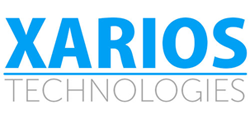

The General Data Protection Regulation (GDPR) is an EU legal framework that set guidelines for the collection and processing of personal information of individuals within the European Union (EU). GDPR sets out the principles for data management and the rights of individuals, it covers all companies that deal with data of EU citizens, even if the company is based outside of the EU.
GDPR provides individuals with increased rights and control over how their data is used. GDPR includes the following rights for individuals:
In addition, businesses wishing to record personal data will need to ensure that at least one of the following six conditions be met to legally record the data:
Any business that processes personal data will need to ensure they have policies and processes in place to meet the rights of the individual’s data they hold. In addition, they need to ensure they have a legal right to store the data, they are not storing data on minors, and that they have processes in place to report data breaches.
Any business that records telephone calls will need to ensure that they have a legal right or requirement to do so. Where call recording is not explicitly required by regulations (such as MIFID II), consent will usually be required.
Any personal data stored in the call recording system will need to be documented as part of the business’ GDPR policies, with specific references on how data can be identified and modified/removed if required.
How consent for call recording is sought, recorded and managed is of vital importance. The ICO has published a detailed guidance on consent under GDPR:
If existing forms of consent held by businesses do not meet the new requirements, they must be refreshed so that they meet the new GDPR requirements.
In addition to the recordings themselves, the call recorder can store personal data on both employees and customers/clients.
The call recorder will store limited personal data for users/employees. User accounts configured on the system will have an email address for the employee but no other specific information about the user. The call recorder does store audit information about what users of the system have done; when they logged in, settings changed, recordings played etc.
In addition to usage data, any call recordings involving employees may contain personal data if discussed.
It is possible for the call recorder to store the personal data of a company's customers in 3 locations:
It is important to understand what information is being collected by the call logging/recording system to ensure that any customer requests can be responded to.
The following sections outline how GDPR affects how the call recorder and how various features within the system can be used to help companies comply with GDPR requirements.
The previous section listed what types of personal data may be stored in the system. It is important to add to your existing GDPR documentation the data that is being stored in the call recorder. If any of the features listed are going to be used as part of the call recorder implementation (Contact Directories, Call Notes, Call Tagging), the type of data stored must be documented.
 |
The call data fields and contact data fields are not designed to store sensitive personal information. Ensure that any data imported into a contact directory or added in a note or tag field against a call is not classed as sensitive and does not relate to a Minor. |
It is important to ensure that your have consent to record customer calls and that they have opted in. If required Xarios can provide solutions to allow callers to opt in at the beginning of a telephone call. Contact you Xarios Sales Representative for more information.
It is important to ensure that only the relevant users have access to the system and that they only have the minimum permissions that they require. In addition, ensure that the server the solution is installed on is appropriately secured and that no unauthorized users can gain direct access.
To ensure that customer records can quickly and easily be identified, the Communication Gateway API can be used to tag calls with a customer ID or other method of identification which offers improved searching over caller ID/telephone number searching.
Tagged data fields against call records and contact data can be updated or removed from the system. To remove call recordings themselves, the 'Recording Deletion' license must be applied to access the Recording Deletion features.
Ensure that all users of the system are trained on data protection and are informed that their own calls are being recorded (if applicable). Provide users with a non-recorded extension that they have access to so that they can make personal calls that are not recorded.
When installing the system, ensure that your GDPR policy documentation is updated to make reference to any personal data that is being stored within the call recorder.